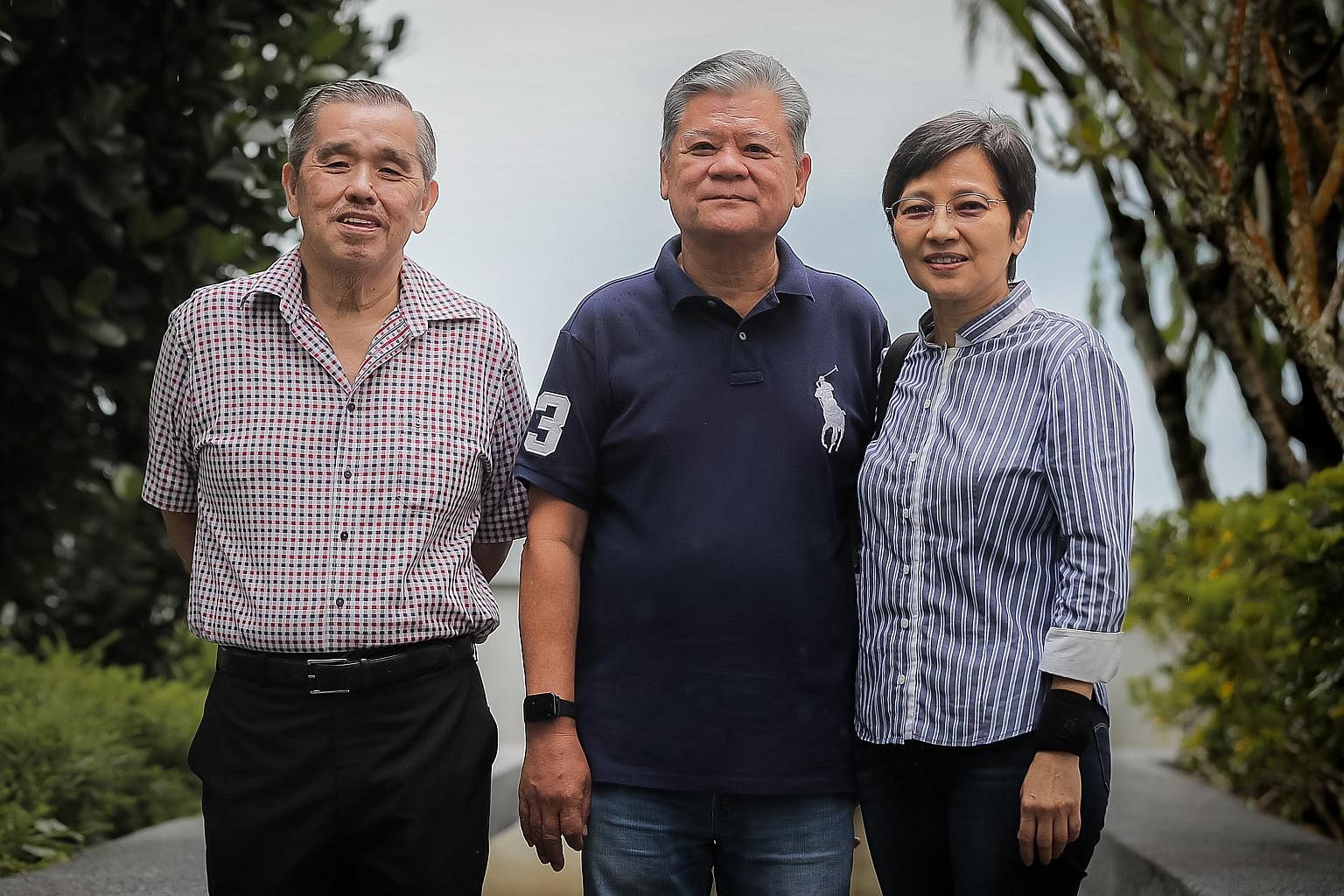S'pore seniors showed resilience in managing Covid-19 pandemic stressors: NUHS study
Sign up now: Get ST's newsletters delivered to your inbox

The study's participants, (from left) Mr Francis Soong, Mr Ng Say Seong and his wife, Madam Lam Chwee Gek.
ST PHOTO: GAVIN FOO
Follow topic:
SINGAPORE - Older adults were hit emotionally when the fear of Covid-19 forced them to retreat into their homes, but they subsequently showed a strong sense of independence, awareness and initiative in managing their physical and mental well-being, a new study has found.
This resilience was largely thanks to the support from their family, particularly adult children, and community service providers, the study by the National University Health System (NUHS) found.
Associate Professor Tan Ker Kan, head and senior consultant at the division of colorectal surgery at the National University Hospital (NUH) and its medical board vice-chairman of research, led the study.
He said the findings reaffirm the value of the work of community service providers, who reached out to seniors via phone calls and digital tools when face-to-face visits were not possible.
Prof Tan and his team wanted to find out how the pandemic impacted seniors, who were more vulnerable. Moreover, overseas studies have shown that the elderly were at higher risk of developing anxiety and depression during the pandemic.
But most of the seniors interviewed by the NUHS team put any negative assumptions to rest. The team spoke to 62 able-bodied seniors aged 65 to 84, living in HDB flats in Pioneer, Buona Vista, Bukit Batok and Sengkang, from January to June this year.
Explaining the seemingly small sample size, Prof Tan said at a media briefing on Friday that this was a qualitative study, where respondents were not restricted by closed-ended questions. It meant that they had to be willing to commit 30 to 40 minutes on the survey questionnaire.
The seniors were recruited by the Pioneer and Ulu Pandan constituency offices, the Silver Generation Office (SGO) - the outreach arm of the Agency for Integrated Care - and other community partners.
Prof Tan, who is also the assistant dean of research at the NUS Yong Loo Lin School of Medicine, said the questions included how Covid-19 measures had affected respondents' routine, health and relationships; what their key difficulties of living with Covid-19 had been; and what the silver lining of living with the pandemic had been.
The team also interviewed 14 staff of community service providers such as BCare, Viriya, Tzu Chi and the SGO.
Madam Lam Chwee Gek, 65, a volunteer turned full-time digital ambassador with the SG Digital Office, who was at Friday's media briefing, told ST that she spent many months convincing her husband Ng Say Seong, 66, to learn to use digital tools.
Mr Ng said he has friends who refused to pick up digital skills, but that such skills have proven to be very important and helpful.
He also said he and his wife could spend more time and have dinners with their adult children who worked from home during the pandemic.
Another retiree at the briefing, Mr Francis Soong, 68, was happy he has not been left behind by the digital revolution, having learnt how to use digital payment platform Paylah and other tools from Madam Lam.
Pioneer MP Patrick Tay told the media he was initially a bit worried that the study results would be negative, based on anecdotes of how older adults were impacted, but he was reassured by the findings.
What stood out was the importance of catering to the social and emotional needs of the elderly, and not just their physical or financial needs, he said.
"It's not just delivering food (to the elderly). It's more than that," he said. "You still need that familiar community support."
He said seniors tend to do better when they have support.
"We never know when the next emergency, pandemic or crisis will happen. This entire process allowed a lot of the grassroots and community volunteers to better understand the needs and expectations of our seniors," said Mr Tay.
He added that there is a lot of pent-up demand for community activities and service providers have increased these activities.
Dr Kwek Liling, a senior resident physician at NUH's surgery department, who was part of the research team and is a grassroots leader and community volunteer, said the study reassures volunteers that their time spent delivering food and asking seniors if they were okay was well spent.
In the study, seniors who had adult children cited them as important sources of support and engagement. Many also cited community service providers as strong avenues for social support, engagement activities and practical go-to resources.
The perception that Singapore was managing the pandemic well also contributed to their confidence.
"I think we undervalue the contributions from the Government and the community providers. We need to be ready for the next pandemic and not take this strong social fabric for granted," said Prof Tan.

